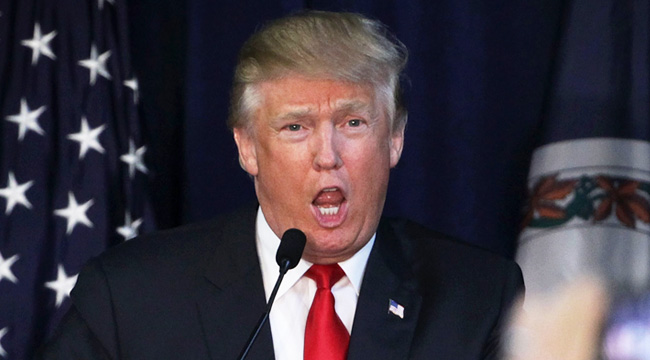
On Monday evening, Congress reached a bipartisan deal that does a number on Trump’s power regarding Russian sanctions. The agreement follows recent reports that Trump hoped to end Obama’s punishment (for election meddling) of Russia by returning luxury diplomatic compounds. And a few weeks ago, a damning Yahoo News report — backed up by “alarmed” former U.S. officials who went on the record — revealed that the incoming Trump White House immediately moved to remove existing Russian sanctions. The concerned officials successfully lobbied Congress to block the Trump move, and now, the Senate has gone further by hammering out rules that severely limit Trump’s ability to roll back Russian sanctions.
The deal, which is a truly bipartisan one, says quite a lot about the caution that Congress wishes to exercise upon Russia, even though not all of the agreement’s supporters are believers in Trump campaign collusion. The deal expands existing sanctions not only regarding Russian interference in the U.S. election (and other elections) but also concerning Russian military aggression in the Ukraine, its annexation of Crimea, and its aid of the Assad regime in Syria. In addition, new sanctions would be imposed on Russian industries that include mining and shipping.
Perhaps most significantly, Congress has now prevented Trump from lifting Russian sanctions without prior Congressional approval (which doesn’t sound likely to happen!). The agreement unites proposals from multiple bills that have already been introduced, including legislation authored by Republicans John McCain and Lindsey Graham, along with Democrat Ben Cardin. Following the deal, both Democrats and Republicans sounded pleased, and Sen. Minority Leader Chuck Schumer (D-NY) had this to say:
“By codifying existing sanctions and requiring Congressional review of any decision to weaken or lift them, we are ensuring that the United States continues to punish President Putin for his reckless and destabilizing actions. These additional sanctions will also send a powerful and bipartisan statement to Russia and any other country who might try to interfere in our elections that they will be punished.”
Further insight comes from Lindsey Graham (R-SC), who previously stated, “Russia has done nothing to be rewarded with sanctions relief.” Graham now believes that Trump needs to stop describing the idea of Russian collusion as “an excuse by the Democrats who lost an election.” On Monday night, Graham stated, “I think the president has conflated the legitimacy of his election with Russia’s involvement.” That is to say, Graham doesn’t believe that Russians changed the election’s outcome, but he does think they interfered.
CNN reports that senators on both sides hope and expect that Trump will not resist these new restrictions regarding sanctions. They’ve even attached the deal to some Iranian sanctions in the hopes of easing the road to Trump happiness. So, will Trump veto? To do so would be as ill-advised as firing Special Counsel Robert Mueller, but that’s apparently a possibility, so predictions may be fruitless. Watching Trump’s Twitter, on the other hand, might provide some real clues.
